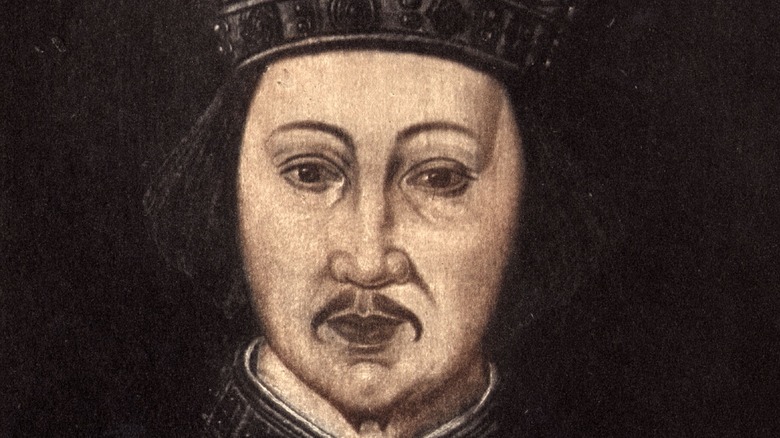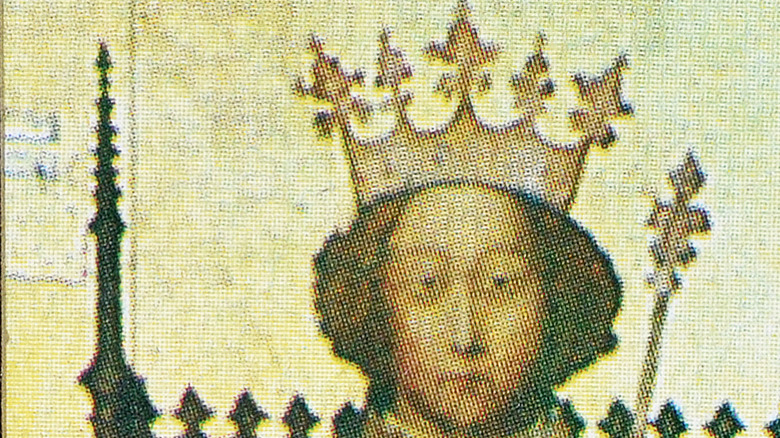The Messy Drama Between King Richard II And His Family
Over the centuries, there has been one constant: family drama. Surely even the wandering nomads had their issues, and power struggles have permeated many families. And Royal families have not been exempt from it since the lures of power prove quite tempting. Infighting was practically a cottage industry for William Shakespeare, and it has even occurred in modern times, from Prince Charles and Princess Diana to the recent turmoil with Prince Harry, Meghan Markle, and the rest of the royal family. Still, Prince Harry and Markle's situation didn't end in murder, and Princess Diana died in an accident while trying to escape the paparazzi. It has happened, though, with two notable examples being Pharaoh Ramesses III to King Richard II, and the latter is the subject of this piece. Indeed, Richard met his end due to family issues, and it was definitely a messy situation.
First of all, per Historic UK, King Richard II was the ruler of England from 1377-1399. It was his end and his interaction with his family that made his story a very juicy one. His own family helped depose him and even execute him. Richard became king at the age of ten, and he was apparently a very cruel person — getting absolute power at such a young age might have something to do with it. While he might not have rivaled Joffrey from "Game of Thrones" in terms of bad deeds, he was not viewed in a good light.
King Richard II was not popular
Per Britannica, King Richard was immediately put into difficult situations, like the Peasants' Revolt in 1381 when the working class demanded higher wages. Although the monarch managed to quell it, he did so by issuing empty promises that he had no intention of fulfilling. As he grew older, his personality did not improve, and he also had corrupt people around him acting as advisors.
Eventually, Richard's opponents had enough and decided to form a committee to make him lose power. According to the National Archives, it was called the Lords Appellant, and even some of his own family joined it. They then created a Parliament — dubbed the "Merciless Parliament" — and swept through the ranks of King Richard's staff, taking their property and then having them executed. This didn't deter the King, who was able to make a power grab by having the head of the Lords Appellant executed.
According to English Monarchs, it was Richard's own cousin, Henry Bolingbroke, who ended his reign. The latter lost one of his staunchest allies in John of Gaunt, his uncle, who died in 1399. King Richard then disinherited Henry and exiled him. Henry, who had been an ally before all this, returned after a few months with the intent to foment an uprising. In that process, he captured King Richard II and had him killed. Henry then took the crown and became King Henry IV, ending another sordid chapter in royal infighting.

